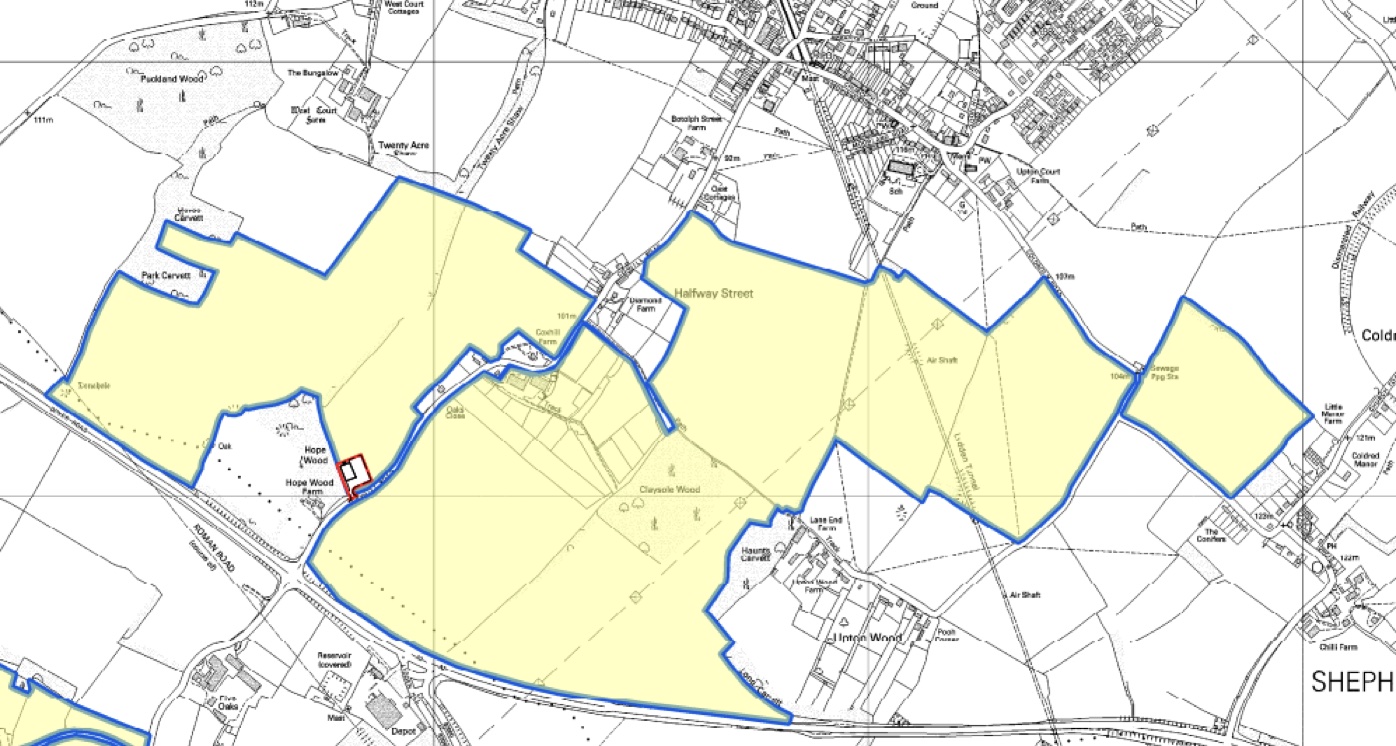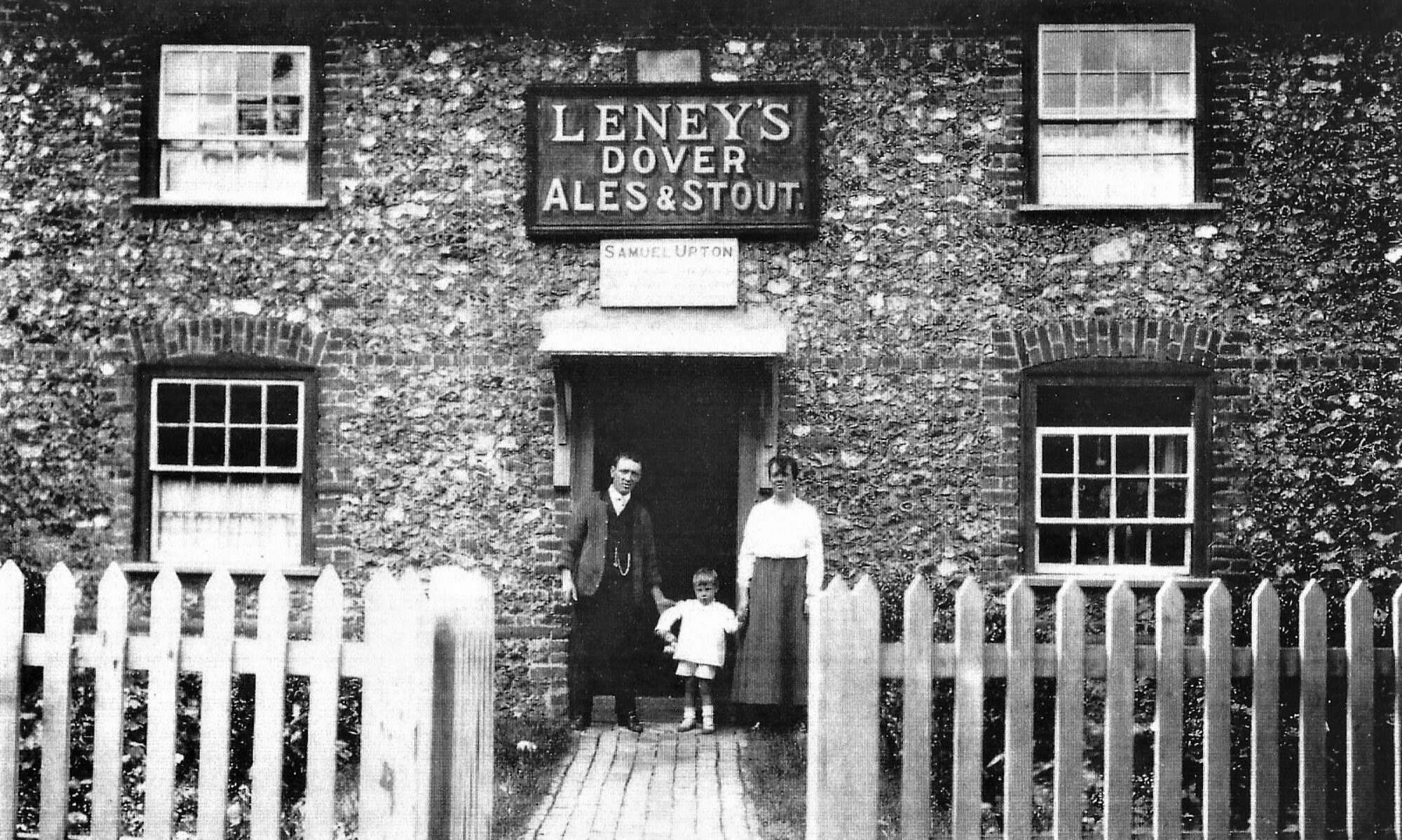Coxhill Farm, Coxhill, Shepherdswell
Coxhill Farm today is a single farm although at one point in its history, it was divided into Great Coxhill Farm and Little Coxhill Farm, probably during the time period when the land was farmed together by brothers Thomas and James Iggulden until 1864. They maintained separate houses, and in 1926, H Coppen described Little Coxhill as being closer to the village. The actual site of the Little Coxhill farmhouse has yet to be proven.
The history of Coxhill Farm goes back centuries, with a map (below) dated around 1670 showing its position and the nearby buildings, some of which would have housed the farm workers. It is not known who originally owned the land but at some point it became part of the holdings of the Ecclesiastical Church Commissioners, until it was sold in 1996 to a local farming family.
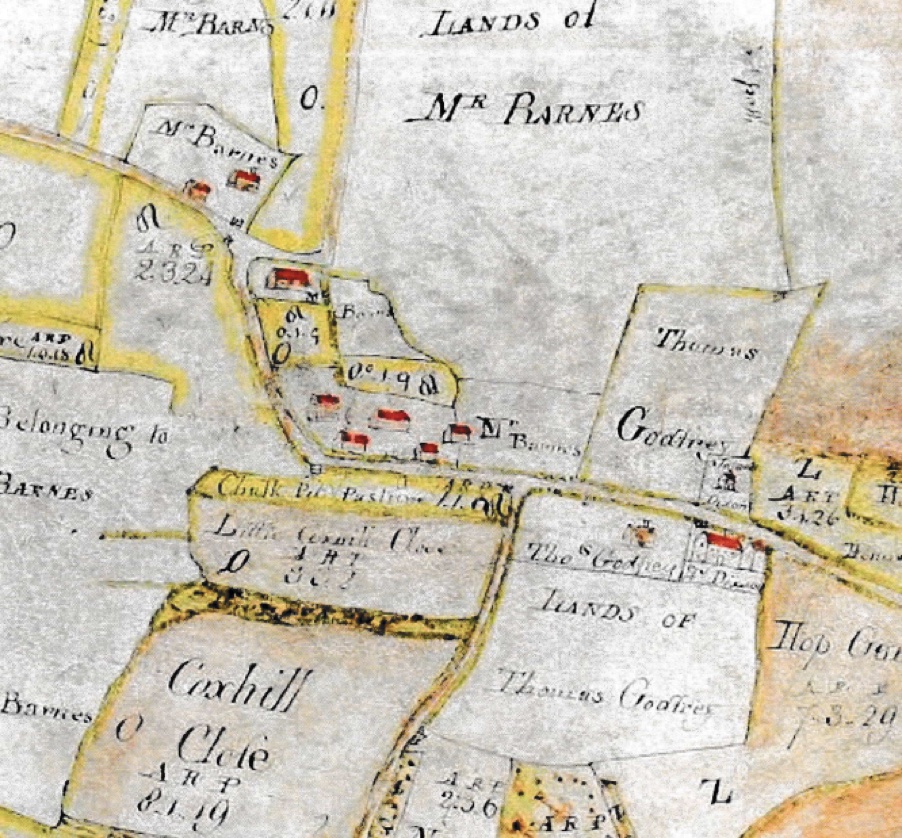
Records for tenant farmers have been found in local newspaper articles, censuses and directories, together with details of auctions of livestock and implements.
In 1816, tenant farmer Jonas King auctioned his livestock and implements at Coxhill Farm, with Mr Dodds of Cock’s (sic) Hill Farm, Shepherdswell doing the same in 1819. Leases could be short so it is likely that Mr Dodds had taken over the lease from Jonas King. In 1820, the farm was noted to be 257 acres, 2 rods and 37 perches in size, with 218 acres and 2 rods being tithe free. We have yet to find out who took up the tenancy in 1819 but by 1841, the Iggulden brothers were the farmers, with Great Coxhill described as being 129 acres and Little Coxhill 185 acres, giving a total of 314 acres. In 1864, George Knollis Jarvis appears to have farmed here.
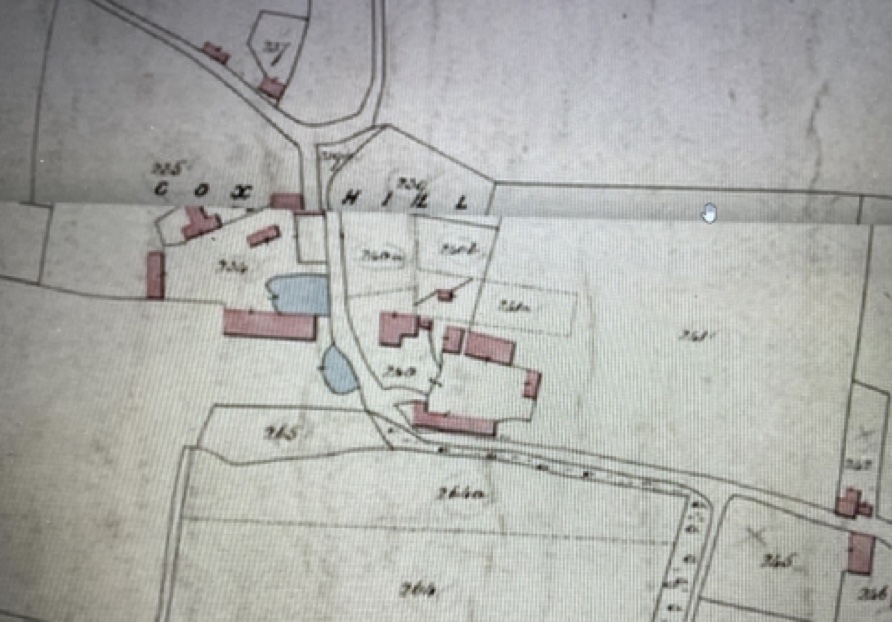
William Jacob was the next significant farmer, holding the lease jointly with his father, Thomas, from somewhere around 1868 until 1899. William was the nephew of John Jacob, who farmed at Westcourt Farm, and had moved from Lyminge. The Jacob family were heavily involved with the local Wesleyans and were instrumental in promoting the building of the Chapel on Church Hill. In 1879, the Church Commissioners decided to remove the ‘old house at Coxhill’, erecting a new farmhouse in 1880, at a cost of £650. William’s rent was then £250 per annum. The original farmhouse stood quite close to the road and had cellars.
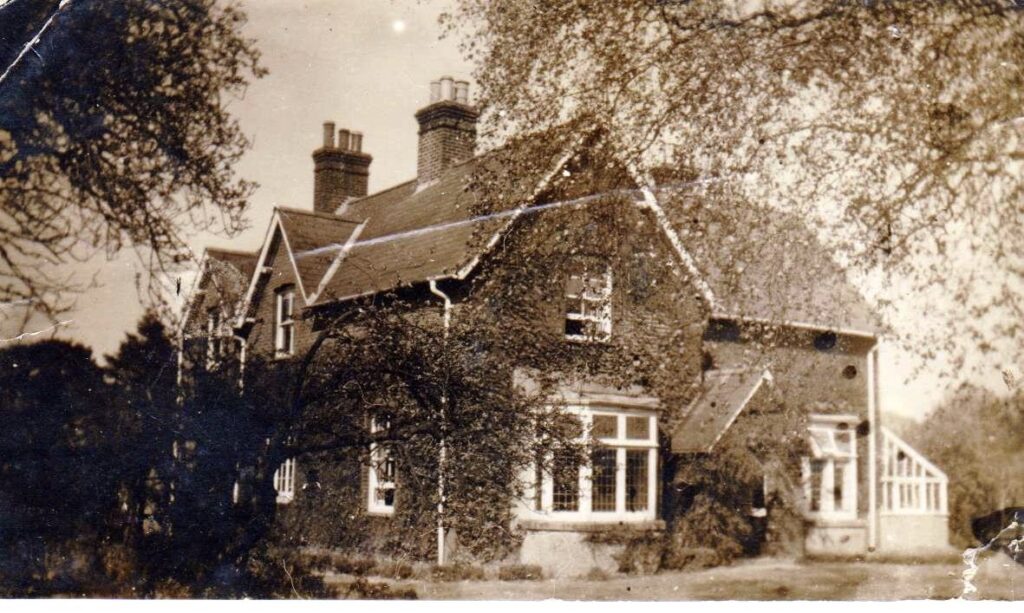
Richard Higgs took over the farm in 1899, working until his death in 1943. He also had the leases for other local farms at the same time. As well as being a farmer, he was a member of the Parish Council, Dover District Rural Council, and Kent County Council. He was a prolific writer of letters to the press, campaigning for better rights for rural communities and farming in particular. He also wrote poetry and books, including ‘Dreams of the Hills’, ‘Nature Worship’ and ‘Our Village and The Great War; the Story of Shepherdwell’ (a reprint is available here today to buy). Richard specialised in breeding sheep and had shorthorn cattle and a dairy herd, sending milk by train to local dairies in Dover.
After Richard died, his son Godfrey Higgs took over the farms, until surrendering the lease in 1962. During WW2, Godfrey was a member of one of the Auxiliary Units. These were highly secretive local groups of men, usually farmers, who were trained in sabotage and armed combat should the country have been invaded. It wasn’t until 1994 that Godfrey told his family about this. January 1957 saw an outbreak of foot and mouth disease on the farm, with 135 Ayrshire cows and 350 Scotch half-breed sheep having to be destroyed. Godfrey had spent 12 years building up his herd so this must have been devastating for him.
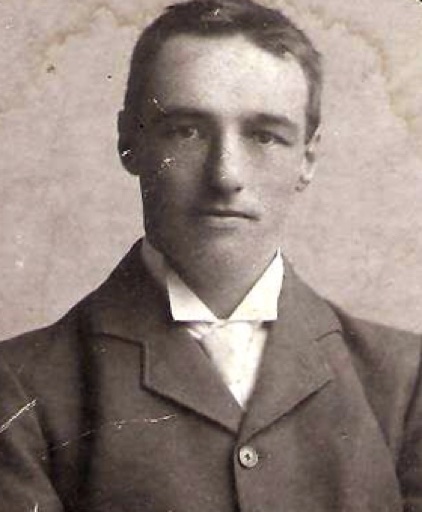
The lease came up again in 1962 when Thomas Miller took over Coxhill Farm until around 1971, followed by the local Skinner family who farmed at Geddinge. Tim Skinner’s tenure included a lairage scheme at Coxhill Farm, where animals would be rested before leaving the UK by boat to Europe. This became a highly charged political issue when the protests at Dover Docks against live animal exports were at their height. At this point, the farm appears to have been around 180 hectares. There was even a foiled fire-bomb plot in 1997, when the farm had police surveillance.
Today the farmhouse is privately owned, with the farm itself being owned by the Gower family. The land is mostly arable, with some horses at livery and a recently introduced seasonal campsite.
